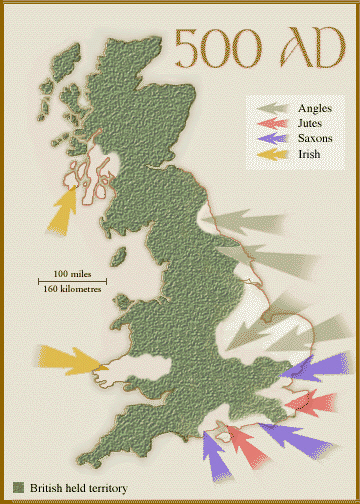Pangur Bán
Deconstructed
@Traitorfish, you may be overstating the case. Opening lines of Caesar's De Bello Gallico start by defining them as a lingustic group and differentiating them from Germans, though differentiating them also from Belgae (related group) and Aquitanians (proto-Basques).
You should read Murray Pittock's Celtic Identity and the British Image and some of his other works. Celticness as a romantic identity is a proxy for resistance to Britishness, so is viciously attacked by proponents of Britishness in a variety of forms, including the counter-myth (framed as myth-busting). As a result, there are lots of establishment 'myth-busters' saying all Celticness is invented and such stuff, but actually it is usually fairly easy to tell the difference between Roman- and post-Roman-era Celtic-speakers and Germanic speakers based on names (e.g. personal names, Calgacos (swordsman) or Argentocoxos ('silver leg') versus Sigeric (victory+wealth/authority/ruler) or Alaric (everything+wealth/authority/ruler)).
You should read Murray Pittock's Celtic Identity and the British Image and some of his other works. Celticness as a romantic identity is a proxy for resistance to Britishness, so is viciously attacked by proponents of Britishness in a variety of forms, including the counter-myth (framed as myth-busting). As a result, there are lots of establishment 'myth-busters' saying all Celticness is invented and such stuff, but actually it is usually fairly easy to tell the difference between Roman- and post-Roman-era Celtic-speakers and Germanic speakers based on names (e.g. personal names, Calgacos (swordsman) or Argentocoxos ('silver leg') versus Sigeric (victory+wealth/authority/ruler) or Alaric (everything+wealth/authority/ruler)).




 It's usually those with weakest claims to membership who're the most ardent exponents of an ethnic group's exclusivity.
It's usually those with weakest claims to membership who're the most ardent exponents of an ethnic group's exclusivity. 